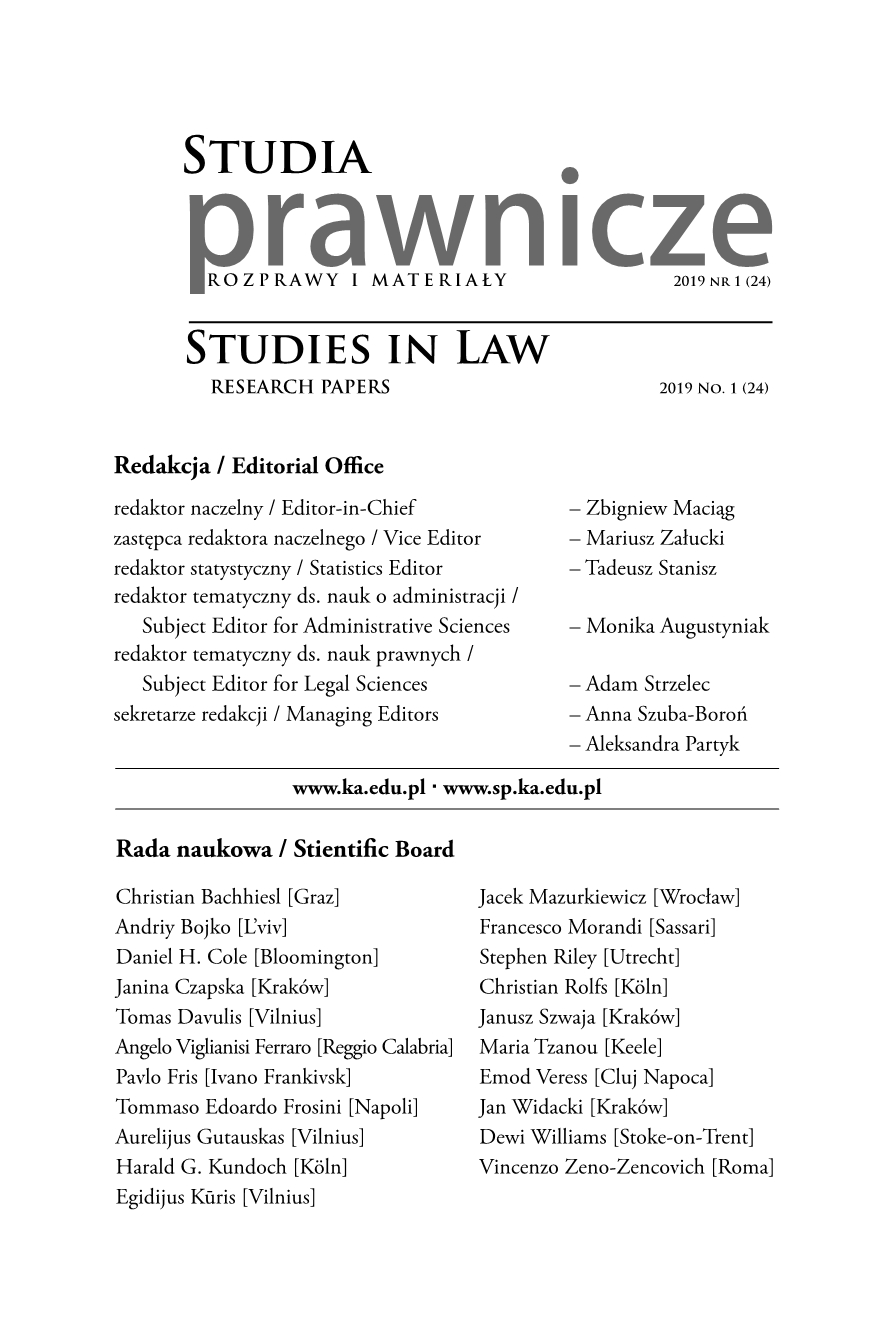Własność i dziedziczenie w polskiej konstytucji z 1997 r. (na tle uregulowań konstytucji wybranych państw)
Ownership and Inheritance in the Polish Constitution of 1997 (Against the Background of the Constitution of Selected European Countries)
Author(s): Halina Zięba-ZałuckaSubject(s): Constitutional Law, Civil Law, International Law
Published by: Oficyna Wydawnicza AFM Uniwersytetu Andrzeja Frycza Modrzewskiego w Krakowie
Keywords: constitution; ownership; inheritance; subjective right; system principle;
Summary/Abstract: Private property and inheritance are legal institutions linked by an inseparable genetic and functional link. This is reflected not only in the content of the legal provisions governing these institutions, but also in the constitutional provisions that govern jointly ownership and succession. The right of inheritance does not exist in any of the provisions of the Constitution of the Republic of Poland of 1997 on its own, but always along with the ownership, which indicates a close relationship and mutual dependence. The Polish Constitution refers to the protection of property and the right to inheritance in two articles, i.e. Articles 21 and 64. According to Article 21, the Republic of Poland “shall protect property and the right to inheritance”, and thus points to the system principle, while Article 64 is included in Chapter II, which is entitled “Freedoms, Rights, and Obligations of Man and Citizen” and thus refers to the status of an individual in the state. The author shows Polish solutions and reviews the regulations in this area in contemporary constitutions in order to present several models of constitutional solutions, however, two of them should be given special attention. In the former the constitution specifies the right of ownership and inheritance, the latter, points out that the right of inheritance must be derived from the right of ownership. A similar situation exists in international law, where some international agreements relate directly to inheritance, while others guarantee only the right to property, while the right to inheritance is derived from it by doctrine and jurisprudence. There is a similar situation in international law, where some international agreements relate directly to inheritance, while others guarantee only the right to property, and the right to inheritance is derived from it by doctrine and jurisprudence. An important issue which, according to the author, is worth considering is the fact that some constitutions treat ownership and inheritance law as a system principle, while others include it in the chapters on the status of an individual in terms of subjective law. Contemporary constitutions consolidate and develop the principles of property protection diff erently from the old constitutions, namely they emphasise the new approach to property relations, which presupposes an obligatory consideration of state interests, on the condition that the rights of individual persons are not opposed to the rights and public interests.
Journal: Studia Prawnicze: rozprawy i materiały
- Issue Year: 24/2019
- Issue No: 1
- Page Range: 5-20
- Page Count: 16
- Language: Polish

